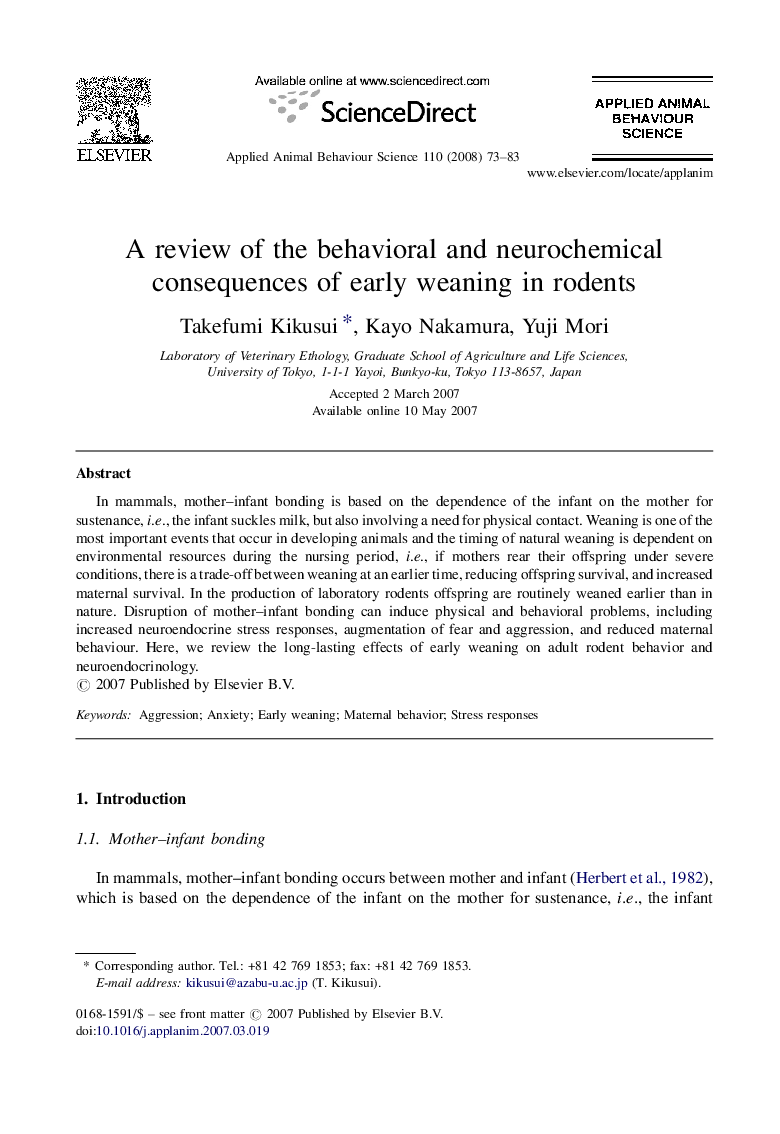| Article ID | Journal | Published Year | Pages | File Type |
|---|---|---|---|---|
| 4524085 | Applied Animal Behaviour Science | 2008 | 11 Pages |
Abstract
In mammals, mother-infant bonding is based on the dependence of the infant on the mother for sustenance, i.e., the infant suckles milk, but also involving a need for physical contact. Weaning is one of the most important events that occur in developing animals and the timing of natural weaning is dependent on environmental resources during the nursing period, i.e., if mothers rear their offspring under severe conditions, there is a trade-off between weaning at an earlier time, reducing offspring survival, and increased maternal survival. In the production of laboratory rodents offspring are routinely weaned earlier than in nature. Disruption of mother-infant bonding can induce physical and behavioral problems, including increased neuroendocrine stress responses, augmentation of fear and aggression, and reduced maternal behaviour. Here, we review the long-lasting effects of early weaning on adult rodent behavior and neuroendocrinology.
Related Topics
Life Sciences
Agricultural and Biological Sciences
Animal Science and Zoology
Authors
Takefumi Kikusui, Kayo Nakamura, Yuji Mori,
